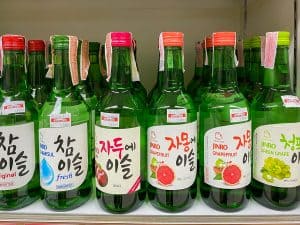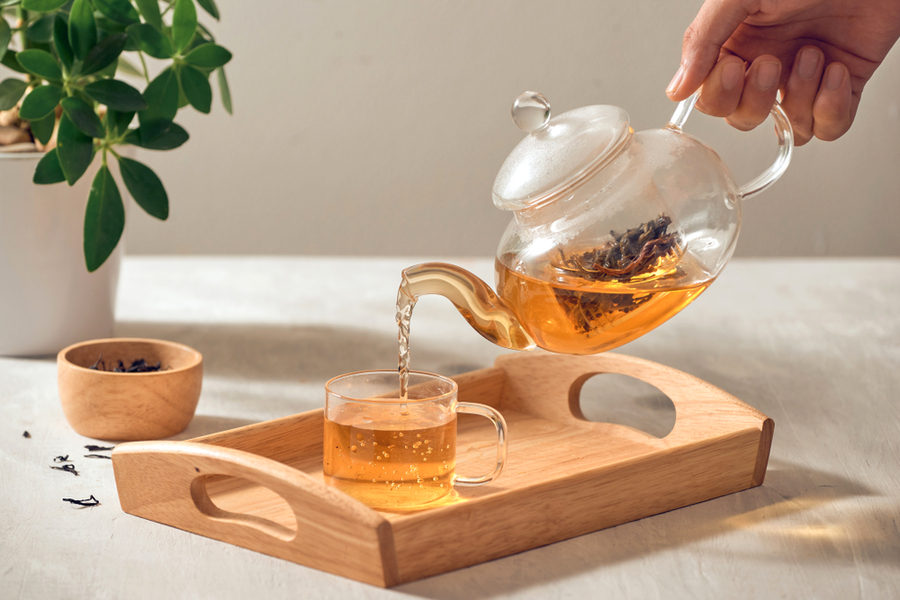
Oolong tea, tracing back its origin to China, is the best drink to use for weight loss and ensures smooth heart function (prevents heart diseases).
In China, this tea is usually served before lunch as it helps in digestion, but it does not necessarily mean that’s the only duration limited for drinking this tea.
Several times of the day are considered the best to enjoy this tea, but it is best to avoid it during a meal or on an empty stomach. So, what is the best time to drink this tea?
There are three different times of the day you can relish its flavor and avail of its benefits, having it with breakfast, half an hour before lunch, and finally, with a light evening meal. These are the best times to get the most out of this tea.
In this article, we will focus on the preparation methods and benefits of oolong tea while also highlighting the disadvantages and times when you should avoid this tea.
Preparation Methods of Oolong Tea
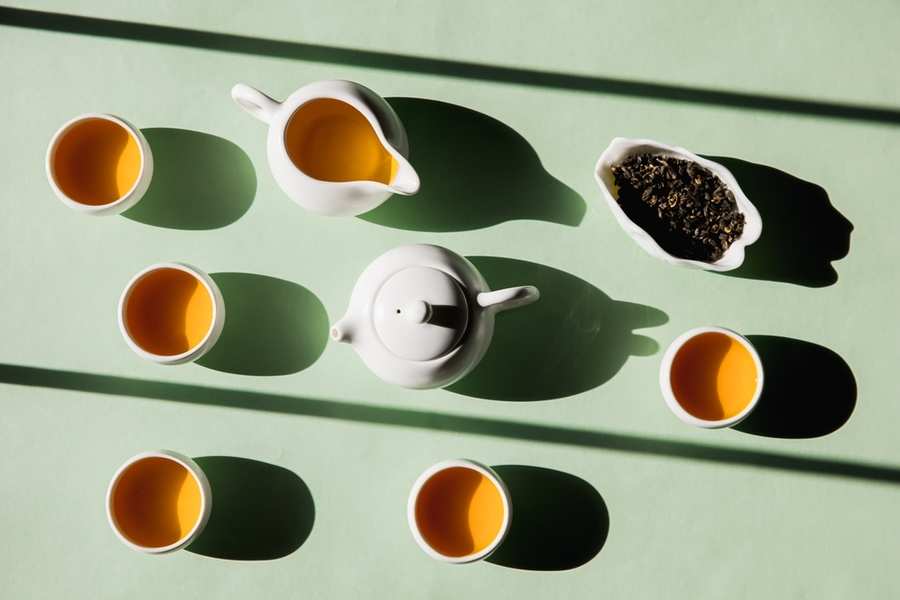
While it may seem simple at first glance to prepare this tea, there are several different preparation methods. Many prefer to enjoy its unadulterated taste, but some may like to add other ingredients.
- Oolong Tea and Leaves: Tea leaves and boiling water are the ingredients to prepare it. You can use an infuser if available if not, strain the tea leaves after letting them sit in water for 5-6 minutes or longer for a sharper taste.
- Oolong Tea and Teabags: As the name suggests, tea leaves are replaced by tea bags, and the process simplifies. Instead of putting tea leaves in boiling water, use a teabag and follow the same procedure.
- Powdered Oolong Tea: This choice is associated with convenience as leaves are ground to powder. Add the powdered form to boiling water and then stir if necessary. Let it settle for a few minutes, strain it and enjoy!
- Oolong Tea With Ginger, Honey, and Lemon: This blend is best known for the healing characteristics of all its ingredients. Add ginger and oolong leaves to boiling water, strain the mixture, add honey and lemon and you are done.
- Oolong Tea With Cinnamon Twist: Let the cinnamon rest overnight in a cup of water, boil the mixture, add oolong tea bags, powder, or tea leaves and let it steep for 3-7 minutes. Strain the brew, and enjoy it hot.
Oolong tea with Cinnamon is a popular blend among weight loss fanatics. This mixture adds the benefits of cinnamon to oolong tea providing double the effect.
Benefits of Drinking Oolong Tea
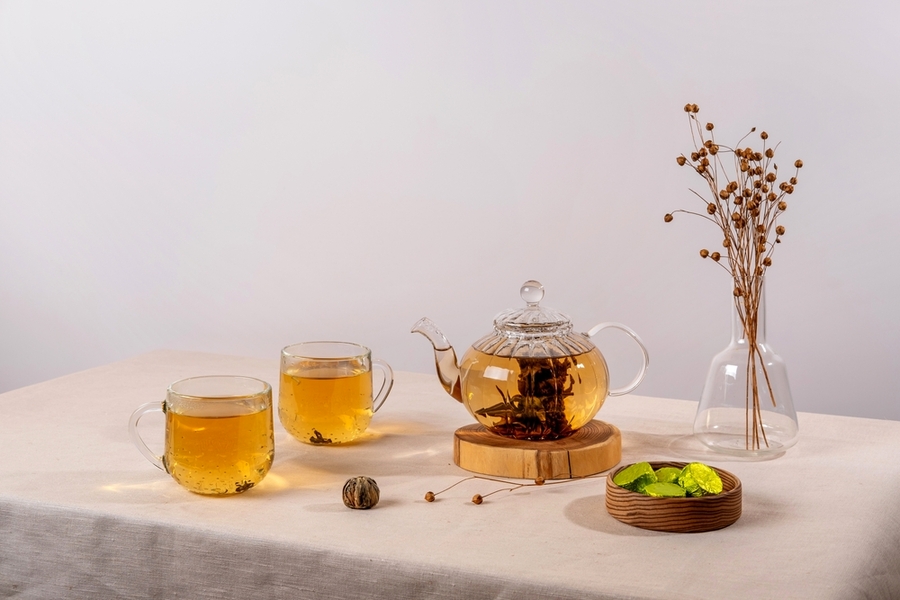
There are various benefits associated with this tea. Here is the list of perks:
- Weight Loss
- Better Heart Health
- Enhancing Brain Function
- Stress Relief
- Other Health Benefits
Weight Loss
Oolong tea has a proven effect on weight loss. It enhances the metabolism function, which means more fat-burning, consequently, weight loss. According to research conducted, it was concluded that many people lost nearly 1-3kg in a month.
Better Heart Health
Oolong tea has the effect of reducing blood cholesterol levels, which contributes to smooth heart function, especially in people with diseases relating to coronary arteries. It also lowers the risk of diabetes, aiding in better heart health.
Enhancing Brain Function
Like other teas, it contains some caffeine, a compound that enhances brain attentiveness by removing fatigue. According to a report, people who drink tea have better mental health than people who do not.
Stress Relief
Teas have a calming effect, and this is especially true for oolong tea. It originates from a plant called Camellia sinensis, acting as the source of L-theanine in oolong tea. It is responsible for calmness and relaxation due to enhancing serotonin levels.
Other Health Benefits
Oolong tea has a lot of minerals in it, for example, calcium, magnesium, fluoride, etc. These minerals help maintain our bones healthy and prevent tooth loss. Also, there are some reports on the benefits of oolong tea in mitigating cancer risks, but the evidence is not solid.
The Downsides of Drinking Oolong Tea
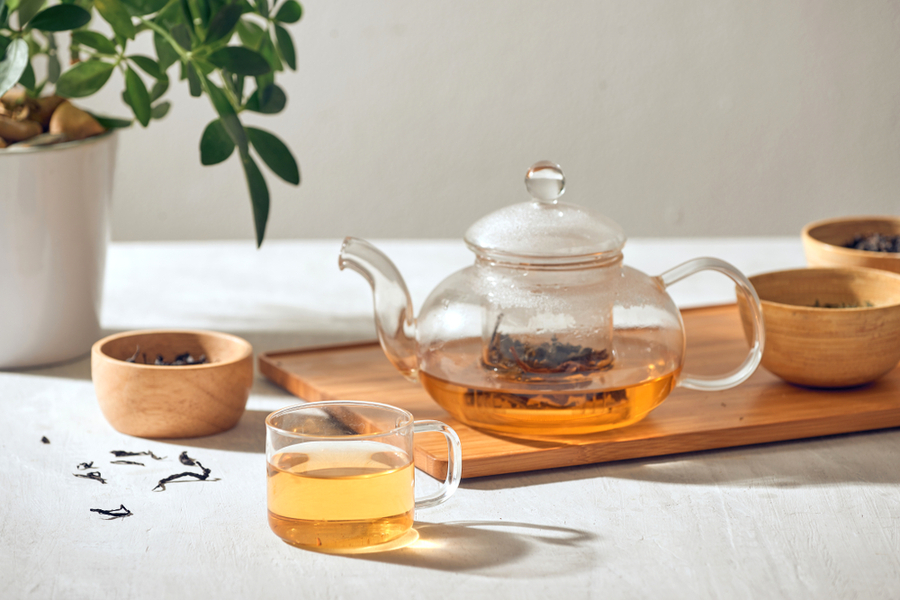
Like every other thing, this tea has its downsides, ranging from mild to severe depending on the condition.
Below is the list of when you should avoid drinking oolong tea:
- Sensitivity to Caffeine
- On an Empty Stomach
- During Pregnancy or Breastfeeding
Sensitivity to Caffeine
Although in fewer amounts, oolong tea contains caffeine, and drinking large amounts of tea (more than 3 cups/day) can lead to insomnia, palpitations, anxiety, headaches, and so on. So, people trying to abstain from caffeine are better off not drinking oolong tea.
On an Empty Stomach
You should avoid drinking oolong tea during lunch; check out 5 things you shouldn’t do after a meal. But having it on an empty stomach can cause severe abdominal pain, vomiting, and even nausea, so it is best to avoid it regardless of the cravings when you are on an empty stomach.
During Pregnancy or Breastfeeding
It is best to avoid oolong tea during pregnancy. You can take it in small amounts; however, ingesting a large amount of caffeine can cause complications during childbirth and the worst case, miscarriage.
Also, keeping your caffeine intake low is better when breastfeeding an infant. If not, it may cause sleeping problems and issues in bowel activity for the child.
Like any other caffeine-containing product, avoid drinking oolong tea at night, or you are in for a sleepless night.
Takeaway
The best time to drink this tea is with breakfast, as it provides enough energy and freshness to carry on with your daily activities. But if you are trying to lose weight, you can also have it before (30-40 mins) lunch and in the evening.
Remember, everything works best in moderation, so try not to exceed the recommended amount (3 cups/day).
Frequently Asked Questions
Yes, it is okay to add milk to your oolong tea. Milk adds a velvety texture to your tea, and you can brew it with milk as with water. Be mindful that milk can add extra calories to your tea, so not a recommended option if you intend to lose weight.
Green tea is considered better than oolong tea because it contains more antioxidant capabilities, but in reality, both teas provide similar benefits, and there isn’t a clear distinction between them.









